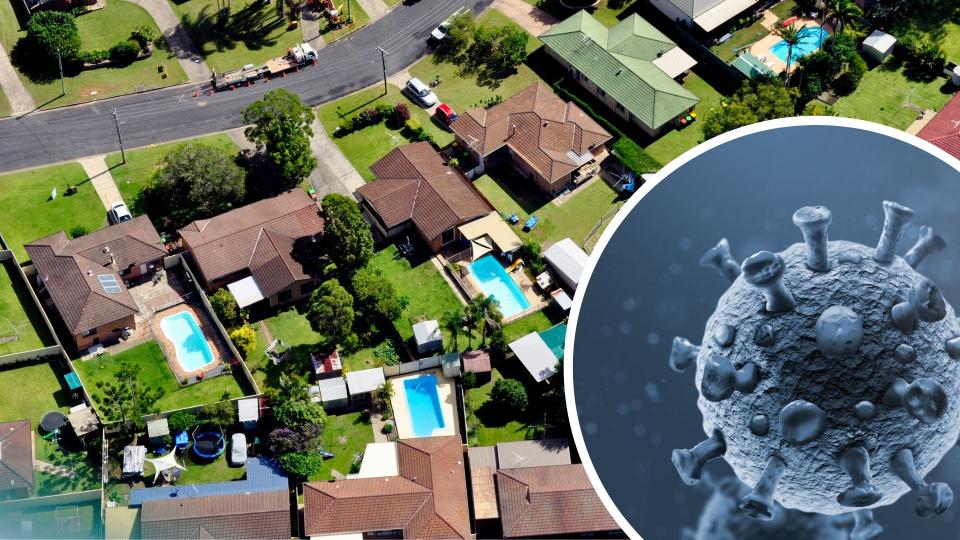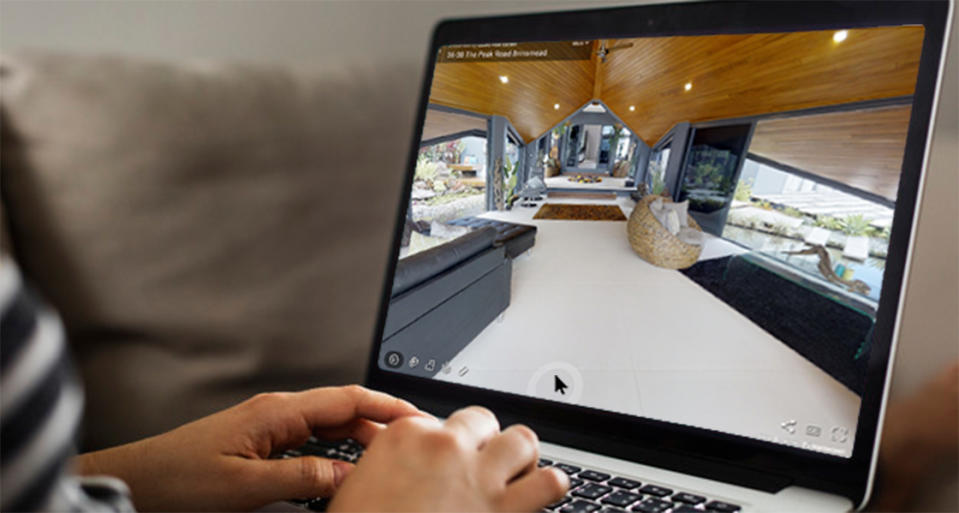Selling a house during coronavirus? Here’s what you need to know

Prime Minister Scott Morrison has banned open houses and auctions, while economists have warned of massive property price value falls.
Related story: 5 things every capital growth property has in common
Related story: Inside the $5 million NSW home featured in The Invisible Man
Related story: 7 reasons why property is awesome despite the coronavirus
AMP Capital chief economist Shane Oliver warned a worst-case scenario where employment reaches 10 per cent could push the Australian property market down 20 per cent, reversing capital cities’ average 9 per cent gains since mid-2019.
Ratings agency Standard and Poors also predicts a “sharp correction” for property prices, albeit one that is short-lived.
For Australians trying to sell a house, that’s a concerning set of facts.
But according to Upside Realty CEO and founder Adam Rigby, there’s no need to panic.
“We are continuing to see buyer interest and properties transacting. This is an unpredictable time for everyone, but currently we are not seeing the data to suggest that people should be making drastic changes to their property plans,” Rigby told Yahoo Finance.
He said that while every seller is different, there are some good rules of thumb to follow.
“If you are already on the market and seeing strong interest there is no reason to make any changes,” he said.
“If you are just about to go on the market, listen to your agent and make decisions about your individual circumstances.”
Upside Realty has seen a drop in buyer numbers, but Rigby said the buyers who remain are “more motivated”.
“It appears that part of the drop in attendance is those more interested in the sticky beak rather than in making a purchase.”
And as auctions and open houses are now banned, firms are looking at new ways to bring buyers and sellers together.
Upside Realty is using virtual open houses to walk buyers through prospective purchases, while its staff are also working from home.

“All agencies are being forced to innovate in one way or another, with working from home, no public open for inspections and no auctions impacting the entire industry,” Rigby said.
How long are we looking at a downturn for?
Stock market movements don’t necessarily have a correlating effect on the property market; housing values were generally unaffected by the 1987 Black Monday crash which saw 23 per cent wiped from local share markets.
But the Global Financial Crisis in 2008 did see some impacts, with the national housing market softening 7.5 per cent, CoreLogic Australia head or research Eliza Owen said in a recent note.
Generally speaking, homes are an illiquid asset meaning it’s difficult for there to be a housing sell-off.
CoreLogic has also not yet seen a change in dwelling values, although it has seen reduced transactions.
Withdrawal rates have increased with clearance rates set to fall below 60 per cent across Australia’s capital cities for the first time since mid-last year.
Owen said it’s difficult to predict how housing values will ultimately be affected, given the differing factors of previous economic downturns.
However, it’s likely the reduced transaction figures will remain until the virus is brought under control and buyer sentiment improves.
Make your money work with Yahoo Finance’s daily newsletter. Sign up here and stay on top of the latest money, news and tech news.
Follow Yahoo Finance Australia on Facebook, Twitter, Instagram and LinkedIn.

 Yahoo Finance
Yahoo Finance 
